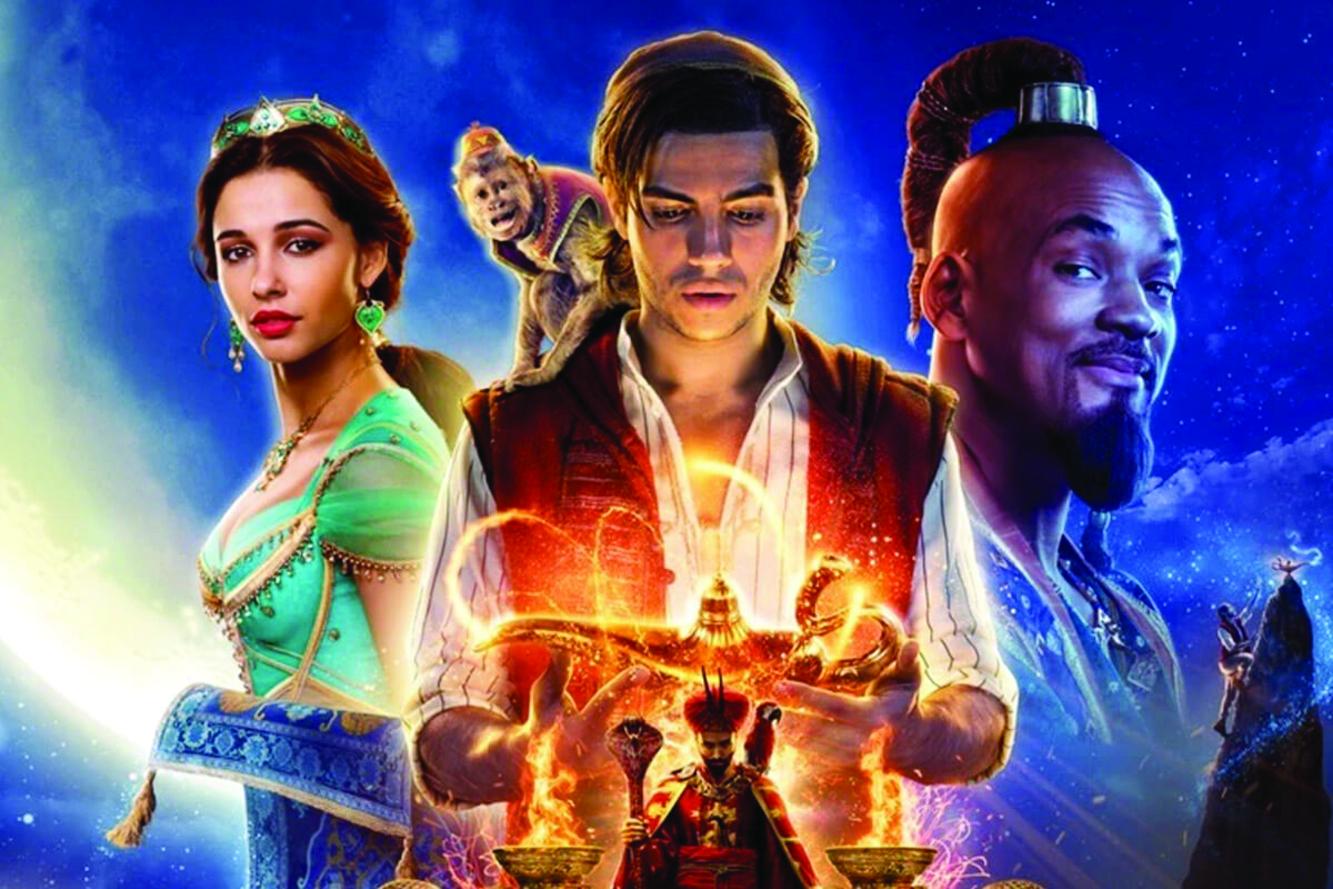In this remake of the 1992 animated Aladdin, Disney has largely eschewed the Arabian pretense of the original; to say that the aesthetic of the film is Bollywood-inspired is an understatement, and it’s a natural choice. Aladdin’s plot — the noble thief masquerading as a prince with the use of a genie’s magic in order to marry the princess — is not only in line with conventions of Bollywood films, like the influence of higher powers and neatly tied-up happy endings, but it also relies on an opulence that, to Western viewers, seems to come standard with Bollywood films.
Resplendent costumes, throngs of extras, and displays of wealth are all staples of the type of spectacle that dominated Western cinema before stunt films and science fiction took over. Those earlier hallmarks are now seen as gauche, but the remake’s “Prince Ali” number, for example, bears some similarity to the seduction of Mark Antony scene in DeMille’s 1934 masterpiece, Cleopatra. In this scene, women dressed as mermaids and leopards offer Antony diamonds, and when Cleopatra and Antony finally lay down together on her chaise, a few dozen extras pull billowing curtains, flower garlands, and palm fronds coyly in front of them. It is the epitome of camp: an assault on the ideas of taste and restraint, presented palatably in the form of cinematic spectacle.
Camp has recently come somewhat into the mainstream, to the extent of being this year’s Met Gala theme. And, in as much as it would be possible for a multi-billion dollar conglomerate to do anything and have it be camp, timing and content made Aladdin the perfect opportunity for Disney to commit to a huge, melodramatic spectacular, making a live-action remake into something new, motivated, and worthwhile.
Disney could have done that. They didn’t.
The parts where director Guy Ritchie flexes his stylistic muscles on a few fun shots, and where the Bollywood influence is strongest (and where Will Smith is able to perform unencumbered by sluggish CG) are the best. They have energy, vitality, and a sense of fun that was present in the original but which the remake largely lacks. In this version, the acting and staging, and even the cinematography always feel restrained, and that stands in sharp opposition to the bright, almost too intricate visual matter of the film. The campiest elements of the original are also downplayed.
Camp has been primarily brought into the mainstream by queer people, but campiness has also been used insidiously by the mainstream itself; Disney has a long history of queer-coded villains, and Jafar was among the most slithery and effeminate. As problematic as this was, it — including Iago, the sniping, put-upon animal sidekick — was ultimately what made Jafar so delightful to watch. Disney has tried to replace the queer-coding with a generic not-very-tragic backstory, and Iago is just a regular parrot. It’s possible that Disney saw live-action as a more appropriate medium to make a “straighter” villain without the comedic relief, but it’s just left Jafar without any personality to back up his evilness.
The rest of the movie is unsurprisingly unmotivated, with a few insignificant plot changes made to modernize some problematic tropes. This is fine, but if anyone thought of a way to make those changes better suit the movie at the same time, it didn’t stick. In Aladdin, Disney has adopted the aesthetics of camp and the Bollywood film, but failed to engage with the conventions necessary to make the aesthetic work, which all boil down to sincerity, unselfconsciousness, and willingness to be whimsical. This fear of commitment to the unrealistic is maybe exemplified by how, instead of remaining a powerful genie after being freed, Will Smith’s genie turns into a human. Where the framework was laid for something fanciful to be left open, it was instead closed off and made mundane. The new Aladdin is the Prince Ali to the original Aladdin’s Aladdin; showy and schlocky, but ultimately, not good enough to warrant being its own thing.


